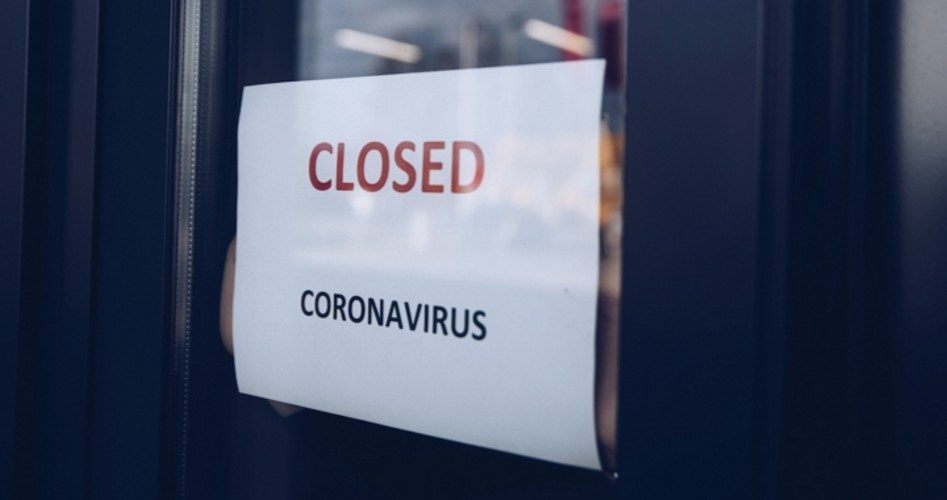
U.S. District Judge Brian Miller begrudgingly ruled last week that Arkansas abortion facilities must adhere to the same coronavirus restrictions as every other medical facility.
The American Civil Liberties Union challenged the state’s April 27 directive requiring individuals seeking elective surgical procedures to obtain a negative coronavirus test within 48 hours of the procedure, among other restrictions. The pro-abortion legal group asked for special exemption from the restrictions for the abortion facilities it represented in the case, claiming the state’s restrictions create undue burdens for those seeking abortions, a premise dismissed by Judge Miller.
“This directive applies equally to all surgical procedures and does not single out abortion providers or surgical abortions,” Miller wrote.
Miller said the directive was prompted by the COVID-19 crisis and was not meant as an invasion of a woman’s right to an abortion.
As reported by LifeNews.com, states across the country imposed bans on elective surgical procedures in an effort to preserve personal protective equipment (PPE) and reduce social contact during the health crisis.
On April 3, the Arkansas Department of Health banned all non-medically necessary surgeries in an effort to preserve the availability of personal protective equipment (PPE) and to reduce social contact during the health crisis, a directive that was challenged by the same plaintiffs in this case. And while U.S. District Judge Kristine Baker in Little Rock issued an order restraining the state from enforcing that directive (Little Rock Family Planning Servs., et al. v. Leslie Rutledge, et al.), the Eighth Circuit Court of Appeals granted the state’s request for mandamus, which dissolved the court’s restraining order.
But states are beginning to relax their restrictions on elective procedures.
In an April 27 directive permitting elective surgeries to resume, the state of Arkansas specified conditions in order for the surgeries to take place. Among the requirements, individuals seeking elective procedures are permitted to do so as long as they have tested negative for the coronavirus within 48 hours of the procedure; institutions performing the procedures must have an “ample supply of PPE for resuming elective procedures while maintaining a reserve should there be a resurgence of the virus”; and the procedure must be outpatient — no overnight stays are permitted for elective surgeries at this time.
But the ACLU argued the requirements resulted in the “outright barring” of individuals “who have decided to have an abortion from getting one and instead forcing them to stay pregnant and have a child against their will,” claiming patients are unable to obtain testing.
“A state should never prevent people from making a decision about a pregnancy that is best for themselves and their families. But doing so during the pandemic, when people are losing their jobs and doing everything they can to keep their families healthy and make ends meet, is beyond cruel,” wrote Jennifer Dalven, director of the ACLU Reproductive Freedom Project, UPI reports.
And while Judge Miller was sympathetic to the plaintiffs, claiming his decision to rule against them was “agonizingly difficult,” he deferred to the Eighth Circuit’s ruling in Rutledge:
The Eighth Circuit determined that the ADH’s April 3 directive was issued in response to the COVID-19 pandemic and that, even if it was an ‘outright ban on all pre-viability surgical abortions, it is not subject to constitutional challenge unless it “has no real or substantial relation to” the public health crisis, or “is, beyond all question, a plain, palable invasion of” a woman’s right to elective abortion.’… For these reasons, the April 27 directive can be reviewed only if it lacks a ‘real or substantial relation’ to the public health crisis or it is ‘beyond all question, a plain palpable invasion’ of the right to abortion.
Because the April 27 directive is even less restrictive than the April 3 directive, which was upheld by the Eighth Circuit, the plaintiffs face a greater challenge in proving burden, Judge Miller observed. The court ultimately determined the April 27 directive to be “reasonable” as it still enables individuals to obtain abortions.
Arkansas Attorney General Leslie Rutledge celebrated the ruling in a statement. “Today’s decision ensures there are no exemptions for surgical abortions during this pandemic,” she said. “Arkansas’s reasonable directive sets standards to protect the health and safety of patients, health care professionals, and the public during the covid-19 emergency.”
Arkansas is just one of two states the courts have allowed to restrict abortion access during the COVID-19 crisis, observes LifeNews.com. Texas is the other, after a Fifth Circuit ruling allowed Texas to halt elective abortions along with other non-essential surgical procedures.
Courts in Ohio, Alabama, Tennessee, and Oklahoma have forced the states to allow abortions to continue, despite bans on elective surgical procedures.
Photo: djedzura / iStock / Getty Images Plus




